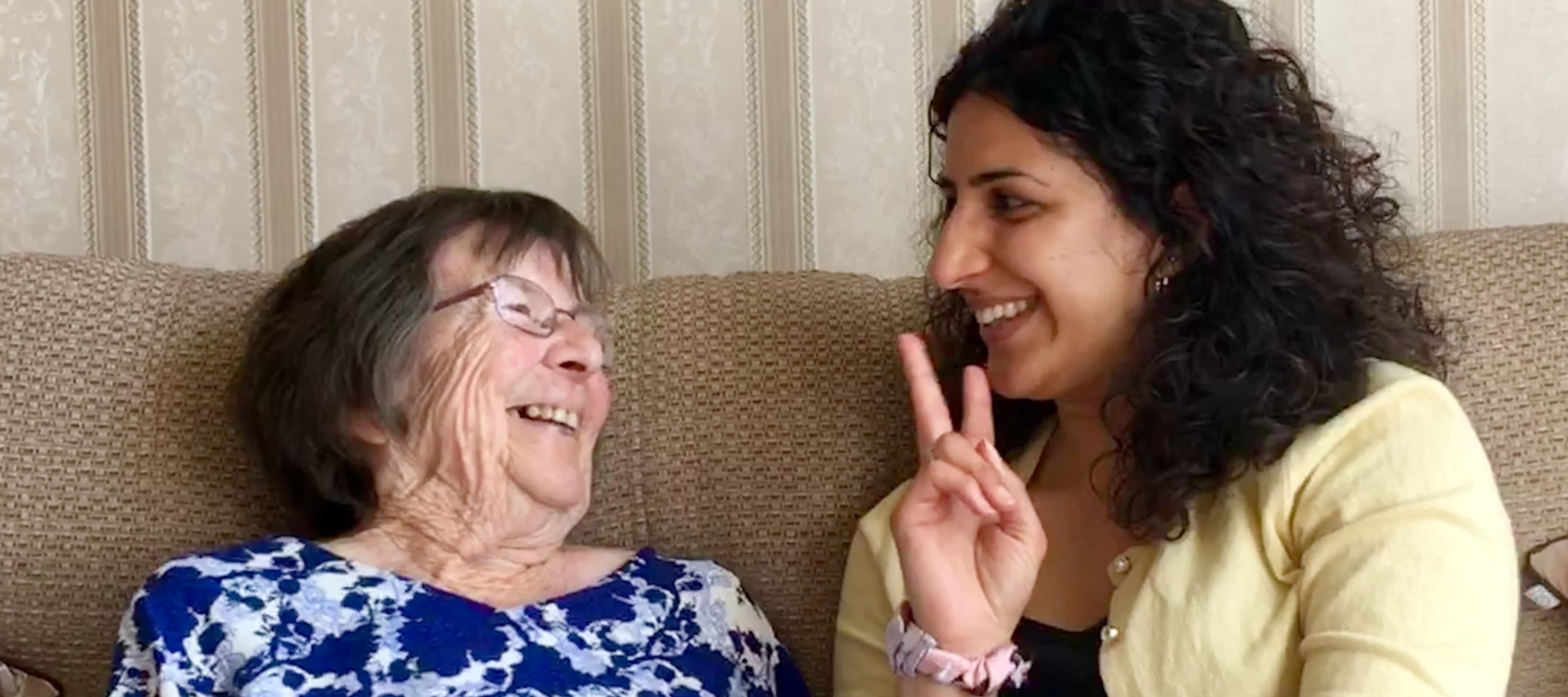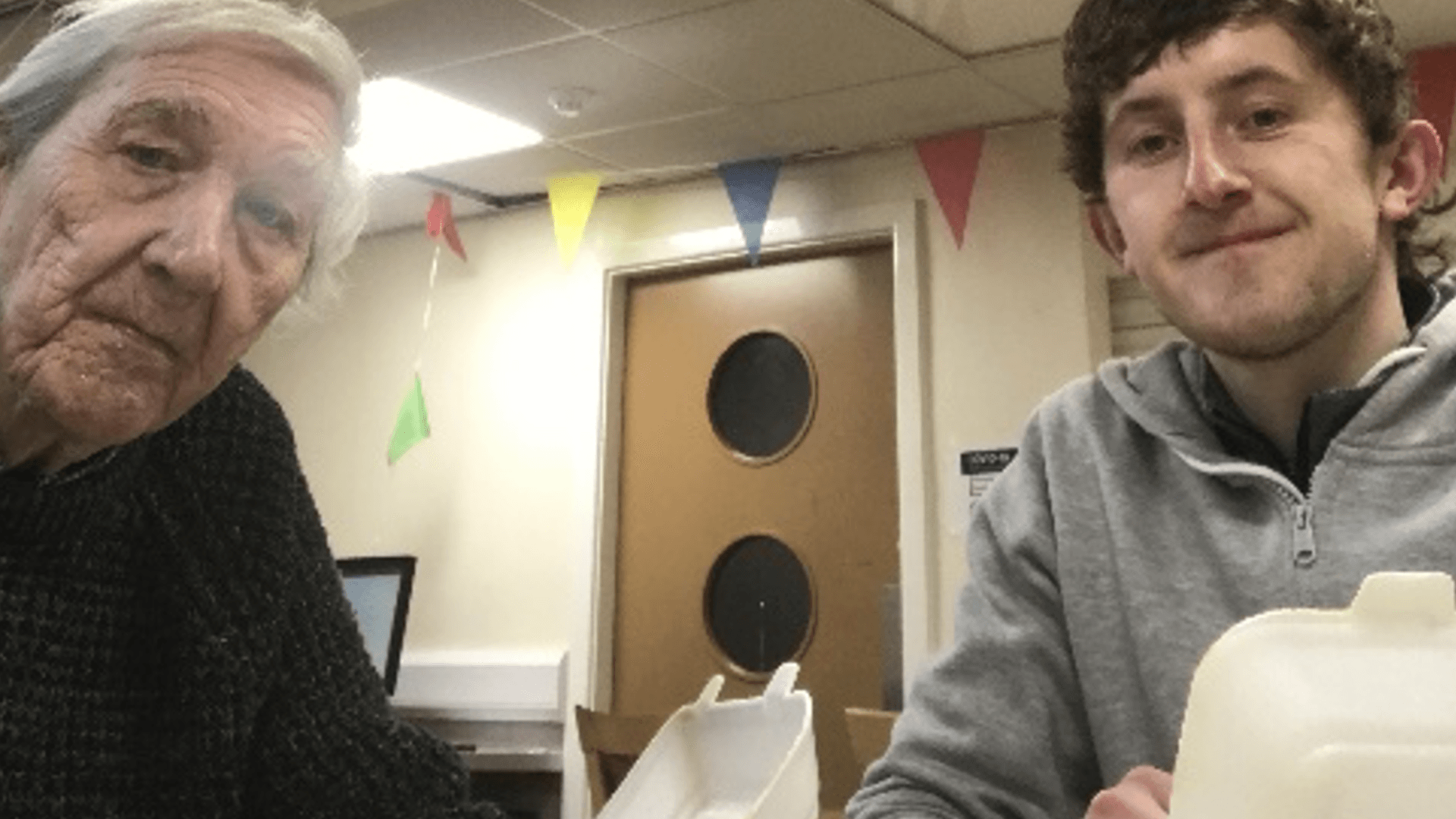
A more relational world
Posted by The Cares Family on 20th June 2019
Please note: this post is 80 months old and The Cares Family is no longer operational. This post is shared for information only
By David Robinson
In 2012, Nelson Mandela famously told a Trafalgar Square crowd that “vision without action is just daydreaming, action without vision is just passing time, but with vision and action we can change the world.” The Cares Family have found that critical biting point with an idea that works, person by person, place by place. More than that, for me, it is an idea which reflects my own learning – that relationships matter.
Relational poverty
I began my professional life working with young people. I would often arrive early for those sessions, or stay late, talking to the children. They would tell me about their lives – conversations that would in turn shape mine. I learnt that poverty is about many things; most obviously about money, but also about something else. I was only five or six years older than they were but I was often the only adult with whom they had a proper conversation. They had no other real grown-up relationships. I saw how this “relational poverty” was linked to three effects:
- An absence of “cultural capital” – the knowledge and capabilities we acquire from mixing with others;
- An absence of networks – the people who can tell us about a work placement, help us understand the wider world, and be accessible role models;
- And, partly as a consequence of the first two, an absence of belief, confidence and self-esteem.
And I realised two things: first, that the absence of real and meaningful relationships is every bit as aggressive and destructive as material poverty and, second, that the two are inextricably entwined.
A repeating pattern
Four decades on, I think of those children and of others I’ve worked with over the years: prisoners and their families, people sleeping on the streets, young offenders. Each of those people had different circumstances and different problems, but repeatedly unpeeling their troubles has revealed the same picture – of relationships either broken, or never existing to a meaningful degree in the first place. And, equally invariably, the building or rebuilding of meaningful relationships has then been a big part of the answer. It is this experience which underpins my own belief in the importance of real, good relationships.
Sadly, however, I think we are moving in the wrong direction, as do many others. Before the last mayoral election in the capital I led a small project called Changing London – effectively a conversation with Londoners. Social connection, and the lack of it, was the top concern for the largest single group, higher than housing or health or crime – although, as I first learnt from those children, not unrelated to any of these issues.
This reinforced my experience: relational poverty didn’t begin 40 years ago, but it has become more widespread and acute at a time when we might have expected it to recede. We now network and transact more than ever, but meaningful time together has been systematically displaced by fast and shallow connections.
In consequence, the quality of our lives has been diminished, with far too many feeling lonely and isolated. Our collective capacity to support one another has been consistently eroded and, perhaps most urgently, our communities have changed. Neighbourhoods, cities and nations are built from the aggregation of countless personal relationships. When these foundational bonds are inadequate, dysfunctional or removed, whole communities are weakened and fragmented. In essence, that which has led to loneliness and social isolation has also led also to distrust, polarisation and division.
This is why The Cares Family is not only a very good idea, but also a timely one, more necessary than ever. But it is not enough.
Looking forward
As a society, we need to fundamentally rethink how we treat relationships in every setting, throughout the life course. We need to tackle causes as well as symptoms and imagine a place – our place – with relationships as the central operating principle running through everything we do: a “relationship-centred” hospital, business, school, neighbourhood. What would change?
We know that most things – councils, banks, job centres, shopping centres, class rooms – don’t work well when relationships are undervalued, or at least they don’t work as well as they could. They have been planned for a smooth process, rather than designed for the best outcome. Systematic transactions are plannable, but warm relationships cannot be so easily reduced to recurring algorithms. It follows that we can only unleash the potential here by reimagining and redesigning from a different, relationship-centred perspective and by involving everyone in the process.
We need that process to occur not just in government, or in corporations, but in communities up and down the country – with local authorities, small businesses, charities, schools, community groups and individuals all feeling involved and feeling the value of those relationships. That way, we will all be able to build real, reciprocal relationships for the long haul – in good times and bad.
I know these are big questions and that my challenge is a tall order, but it is only by thinking about a different kind of society – a whole society that puts relationships first, consistently and continuously – that we can begin the process of making it happen. Vision and action, changing the world.
David Robinson is the co-Founder of Community Links and The Children’s Discovery Centre. From 2007 to 2010 he led the Prime Minister’s Council on Social Action.
This article is part of the pamphlet Finding connection in a disconnected age: stories of community in a time of change, published in partnership with Nesta.


